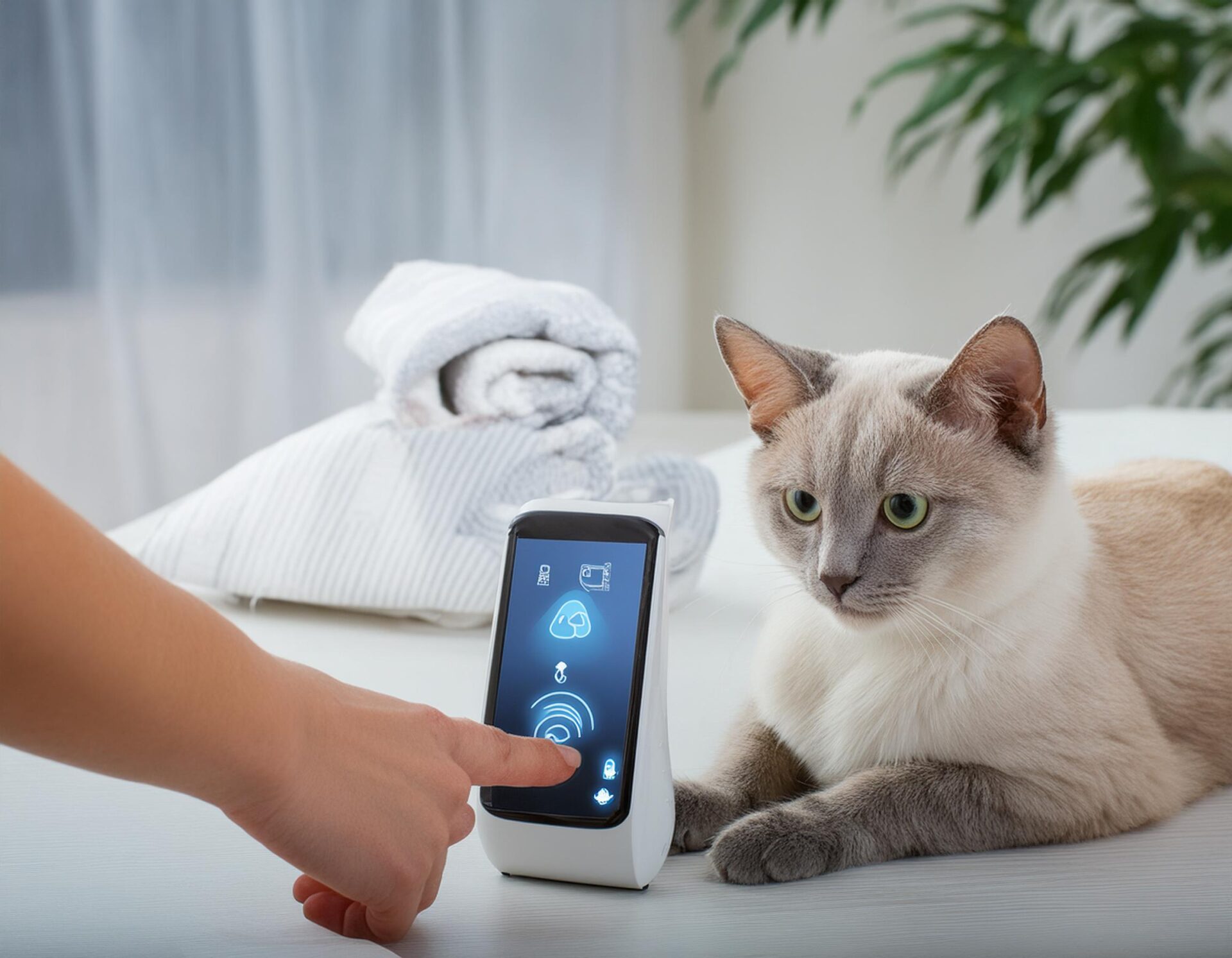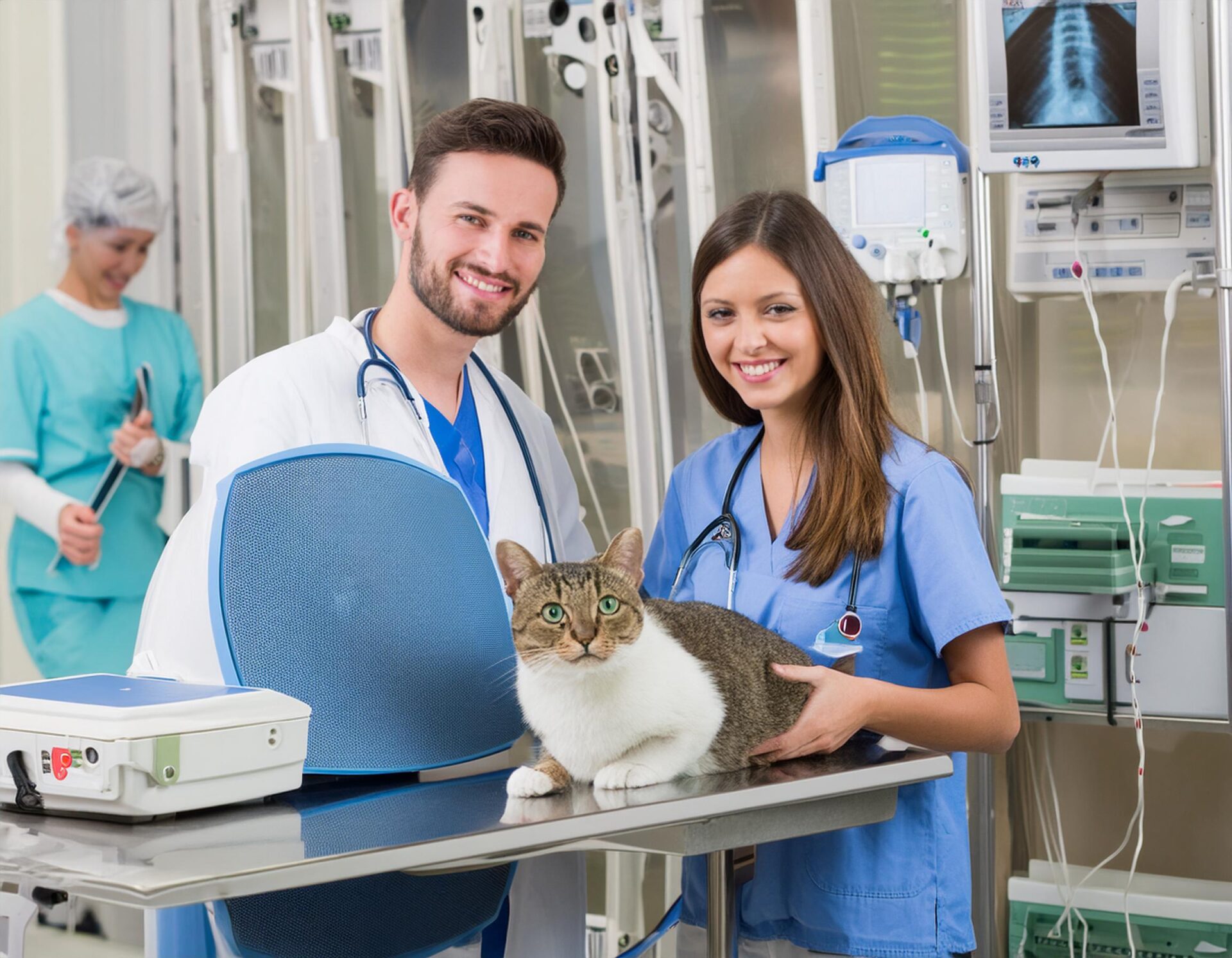Caring for our furry companions goes beyond providing them with food and affection; it also involves being vigilant about their health. As dedicated pet owners, we understand the unease that comes with suspecting something might be wrong with our pets. That’s why staying informed about common pet health concerns is essential. Identifying and addressing any issues early can make all the difference in maintaining the well-being of our beloved animals.
We’ve all experienced that moment of panic when our pet acts out of character, whether it’s due to a sudden illness or an ongoing condition. Fortunately, new technology and smart devices for pets are revolutionizing the way we monitor and manage our pets’ health. From tracking activity levels to monitoring vital signs, these innovative tools offer reassurance that we are doing our best to keep our companions healthy and happy.
Key Takeaways
- Regular monitoring of pet health is crucial for early detection of conditions.
- Smart devices for pets aid in maintaining their well-being and managing health issues.
- Immediate attention to sudden changes in behavior or health can prevent emergencies.
Common Pet Health Conditions
We often think of our pets as family, and just like any loved one, their health is a top priority. From the food they eat to the activities they engage in, we know that maintaining their well-being is essential. With the rise of smart devices for pets, monitoring and managing your pet’s health has become more manageable and interactive.
Obesity in Pets
Obesity is a growing concern in pets, much like it is in humans. Smart feeders can help us control portion sizes and feeding times, ensuring our pets get the right amount of food throughout the day. Utilizing these devices can lead to a healthier lifestyle and prevent the slew of health issues associated with excess weight.
Dental Diseases in Pets
Did you know that dental diseases can significantly affect our pets’ overall health? Thankfully, smart toothbrushes designed for pets help us maintain their oral hygiene regularly. These gadgets track brushing habits and alert us to areas we might be missing, potentially warding off painful dental issues.
Parasitic Infections
Parasitic infections, such as those caused by fleas, ticks, and worms, can be prevented with vigilant care. Smart devices, like app-connected flea collars, offer us peace of mind by reminding us of treatment schedules and even alerting us when it’s time for a new application or preventive measure.
Allergies and Skin Issues
Our pets can suffer from allergies and skin problems too. Innovations in pet care technology such as smart allergy detectors help us identify and manage potential allergens in our pets’ environments. By addressing symptoms early, we can alleviate discomfort and prevent chronic conditions as indicated by insights on skin issues in dogs.
Preventative Care for Pets

We all want to ensure our furry companions live long, healthy lives. That’s why we emphasize the importance of preventative care—it’s the foundation of good health for our pets. Just like with smart devices that help us monitor our pets’ health and safety, proactive steps in their care routine can make all the difference. Let’s take a closer look at how to keep our pets in top shape.
Vaccinations and Routine Shots
Vaccinations are crucial in preventing infectious diseases that can be life-threatening to our pets. Core vaccines protect against rabies, distemper, parvovirus, and hepatitis. Non-core vaccines are tailored to a pet’s specific lifestyle and environment. It’s like updating the antivirus software on our smart pet devices—it helps their immune system stay ahead of potential threats.
Spaying and Neutering
Spaying and neutering are not just about controlling the pet population. These procedures can prevent uterine infections, breast tumors, and testicular cancer. Think of it as the security settings on our pet’s smart devices, protecting them from risks that could severely affect their health.
Nutrition and Diet Management
A balanced diet is as essential for our pets as a quality connection is for smart devices. Proper nutrition and diet management can prevent obesity, diabetes, and heart disease. By serving our pets the right foods and monitoring their intake with smart feeding devices, we’re ensuring they receive the exact nutrients they need for their activity levels and life stages.
Pet Health Emergency
Dealing with a pet health emergency can be stressful, but knowing what to look for and how to act can save your pet’s life. We must stay calm and act swiftly, whether it’s recognizing the signs of an emergency, applying first aid, or deciding when it’s time to dash to the vet.
Recognizing an Emergency
Emergencies can arise unexpectedly and recognizing them is crucial. Symptoms such as extreme lethargy, sudden collapse, difficulty breathing, and uncontrolled bleeding are clear red flags. If our smart devices, like a pet health monitor, alert us to abnormal vital signs or behaviors, it’s a prompt to investigate further.
First Aid for Pets
Quick action can be imperative. Keep a First Aid Kit that includes gauze, adhesive tape, antiseptic wipes, and a digital thermometer. Utilizing smart technology, like an app-controlled first aid guide, can help us follow step-by-step procedures correctly until professional help is reachable.
When to Visit a Veterinarian
Any doubts about our pet’s condition should result in a vet visit. High-tech pet monitors can advise us when there are deviations in our pet’s health metrics, but visible distress, suspected poisoning, or injury always warrants an immediate trip to the veterinarian. If a smart collar indicates abnormal activity or physiological data, we should contact our vet promptly.
Managing Chronic Conditions
Chronic conditions in pets can feel overwhelming, but we’re here to guide you through effectively managing your furry friend’s health with smart pet care technology. From wearable devices that monitor joint movement to automated insulin dispensers, we can leverage innovative smart devices to maintain our pets’ health. Let’s explore how these devices support various chronic conditions.
Arthritis and Joint Health
Arthritis can severely affect our pets’ quality of life, but with the help of smart collars and activity trackers, we can keep a close eye on their movement patterns and pain levels. These devices allow us to detect any signs of discomfort early on and adjust their care plan accordingly. We might start with:
- Smart Collars: Track activity levels and set alerts for decreased movement.
- Automated Feeders: Ensure consistent delivery of joint supplements or medications.
Diabetes Management
Managing diabetes in pets has been made easier with smart health monitors. Continuous glucose monitoring systems can be attached to our pets to track blood sugar levels throughout the day without constant vet visits. For medication, we can use:
- Automated Insulin Dispensers: Deliver precise insulin doses at scheduled times.
- Smart Food Dispensers: Program to match feeding times with insulin administration.
Cancer Treatment Options
Advancements in pet health technology have introduced non-invasive ways to support our pets through their cancer treatment. Wearable devices can monitor vital signs and track recovery after surgeries or therapies, while smart apps can remind us of their medication schedules. We’ll consider:
- Health Monitoring Wearables: Keep tabs on heart rate and temperature changes.
- Medication Reminder Apps: Help us manage treatment schedules without fail.
By integrating these smart technologies into our pet care routines, we can offer our companions a comfortable life despite chronic conditions.
Mental Health and Behavior

Keeping our furry friends both mentally and physically active is key to their overall well-being. We understand that a healthy pet needs more than just good nutrition and regular vet visits; mental health and proper behavior are crucial. So let’s explore how smart devices can help alleviate anxiety, provide behavioral training tips, and encourage environmental enrichment for our pets.
Anxiety and Stress Relief
Our pets can experience anxiety just like us, and we’re here to help you navigate this challenging issue. Smart devices, such as interactive feeders or toys that simulate natural behaviors, provide a distraction and help reduce stress. We’ve seen that activities that engage a pet’s problem-solving skills can lead to a calmer, happier animal. For instance, a study has shown that pet ownership can diminish feelings of loneliness and improve mental health symptoms.
Behavioral Training Tips
Adopting smart technology can offer us wonderful ways to enhance our pets’ learning. High-tech training collars with GPS tracking not only keep our pets safe but can also aid in behavioral corrections with gentle vibrations or sounds. Also, using app-controlled toys can reinforce positive behavior, giving treats as rewards directly from our smartphones. Remember, consistent training with these devices can strengthen the bond between us and our loyal companions.
Environmental Enrichment Strategies
A stimulating environment is vital for maintaining our pets’ sharp minds and preventing behavioral issues. Employ smart puzzle toys that encourage animals to work for their food, mirroring their instinctual foraging behavior. Additionally, set up automated interactive lasers or robots that can keep your pet engaged while you’re away, promoting active playtime. Make sure the challenge is enough to captivate them but not so difficult that it leads to frustration.
Frequently Asked Questions
We know your pet’s health matters to you as much as it does to us. That’s why we’re tackling the common questions about your furry friend’s well-being. Just like with our smart devices for pets, we aim to keep you informed and prepared.
What are the most common health problems encountered by pets?
The health issues our pets face vary, but some recurring concerns are diabetes, liver disease, and Cushing’s disease, which can all lead to increased thirst and urination.
What should I do if my pet becomes ill?
If you spot any alarming symptoms, it’s crucial to contact your vet immediately. Quick action can make a significant difference in your pet’s health outcomes.
How can I prevent health issues in my pets?
Preventive measures include regular vet visits, a balanced diet, exercise, and monitoring through smart devices designed for pets that can track activity and offer insights into their health.
What are the signs that my pet may need medical attention?
Be watchful for unusual behaviors like lethargy, loss of appetite, or excessive drinking. Such signs could indicate your pet needs a vet’s evaluation.
How can owning a pet impact a person’s health?
Owning a pet has been linked to benefits like lower stress levels and increased activity. However, it’s important to be aware of zoonoses, which are diseases that can be transferred from animals to humans.
How do I cope with the emotional stress of having a sick pet?
We understand the bond you share with your pet. Seeking support from fellow pet owners or professionals can help you manage the stress while providing the best care for your companion.

